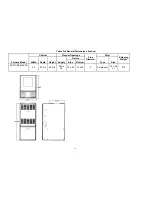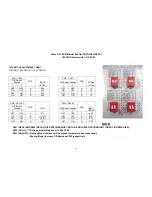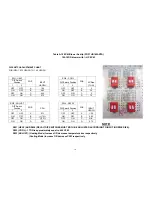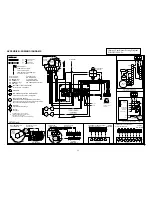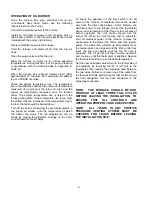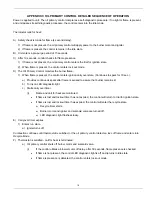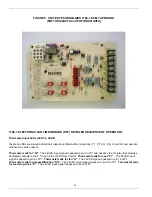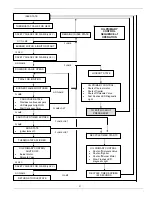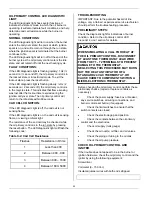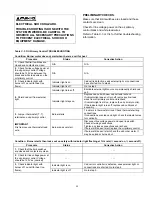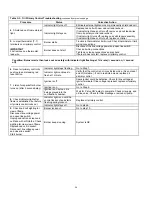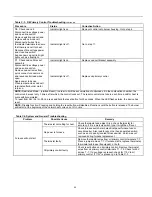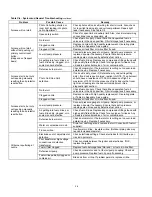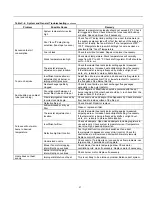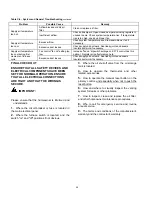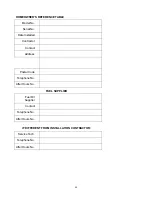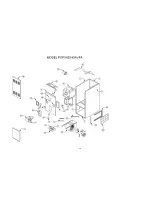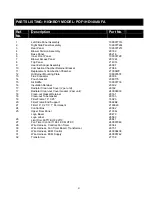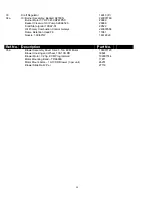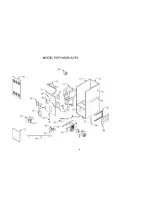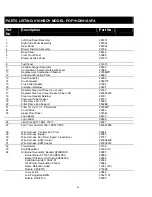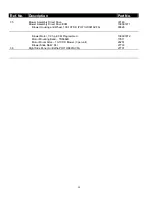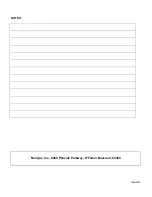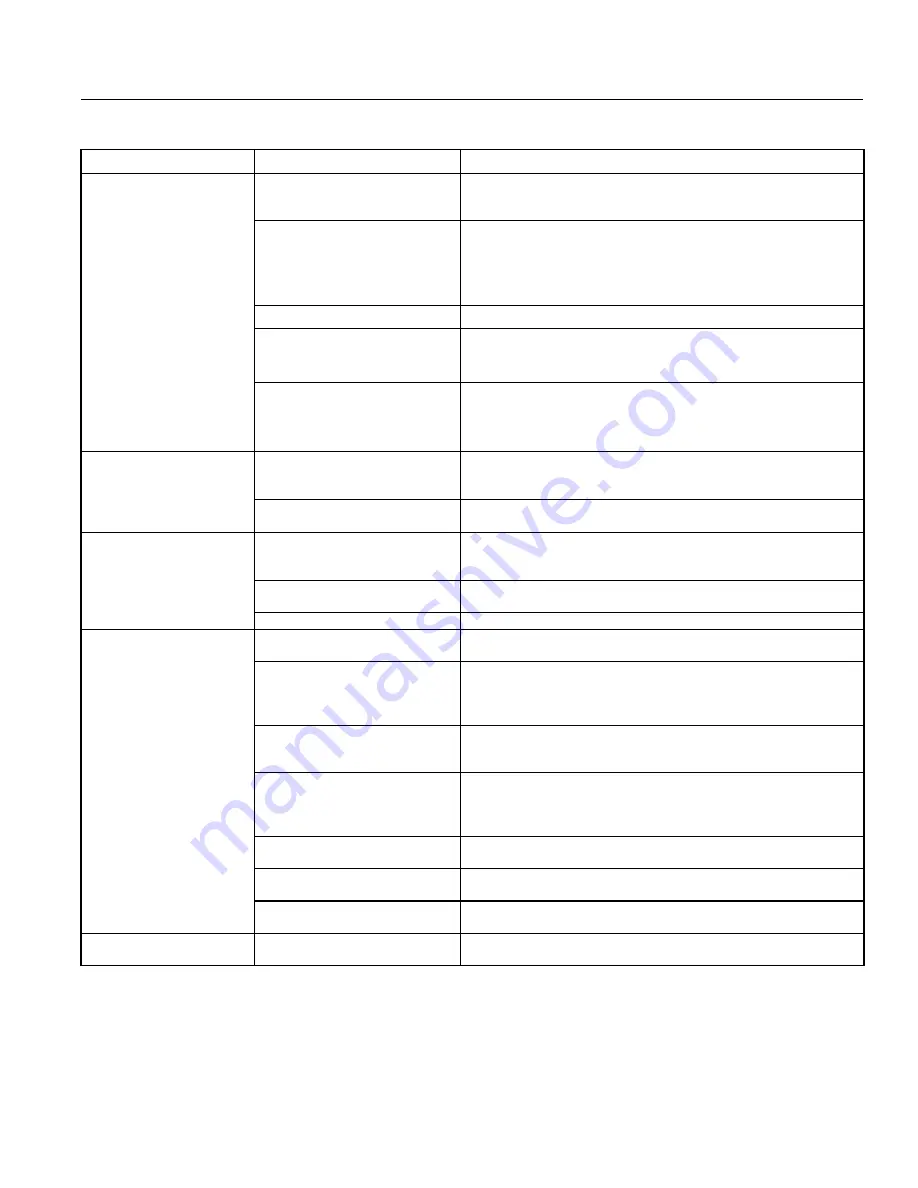
Table C-4: System and General Troubleshooting
continued
Problem Possible
Cause
Remedy
System temperature rise too
high.
System temperature rise ideally should not exceed 85°F. Check
for clogged air filters. Check blower fan for excess dirt build-up
or debris. Speed up blower fan if necessary.
Poor “fan off” delay timing
selection, (fan stops too soon).
Check “fan off” delay timing setting. Use a duct thermometer in
the supply air plenum take-off or first few inches of the supply air
trunk duct. Ideally, the fan will shut off at a temperature of 90° -
100°F. Manipulate the dip switch settings to come as close as
possible to this “fan off” temperature.
Fuel oil leak.
Check fuel oil line for leaks. Repair or replace if necessary.
Stack temperature too high.
Check stack temperature. Stack temperatures will normally
range from 350° to 450°F. Check draft regulator. Draft should be
set to -0.02 in. w.c.
Excessive fuel oil
consumption.
Thermostat improperly
adjusted or in poor location.
Check thermostat heat anticipator setting against measured
amperage draw. Increase heat anticipator setting if necessary.
If the thermostat is being influenced by drafts, sunlight, duct
work, etc., relocate to more suitable location.
Insufficient combustion air
adjustment at oil burner, or
improper draft pressure.
Adjust the oil burner combustion air band and draft regulator to
gain the highest practical CO
2
or lowest practical O
2
content in
the flue gases. See Burner Set Up.
Too much smoke.
Heat exchanger partially
clogged.
Check for soot build-up in heat exchanger flue passages,
especially in the outer radiator.
Poor alignment between oil
burner blast tube and fire pot.
Check alignment. Blast tube should be centered with fire pot
burner opening. Oil burner head should be ¼ inch back from the
inside surface of the fire pot.
Flame impingement caused by
Incorrect nozzle angle.
Check nozzle size and angle. (See Appendix A). Check distance
from head to inside surface of the fire pot.
Soot building up on blast
tube (end coning).
Defective fire-pot
Check fire-pot. Repair or replace.
Airflow blocked or dirty air
filter.
Clean or replace air filter.
Thermostat adjustments or
location.
Check thermostat heat anticipator setting against measured
amperage draw. Increase heat anticipator setting if necessary.
If the thermostat is being influenced by drafts, sunlight, duct
work, etc., relocate to more suitable location.
Insufficient airflow.
Check all dampers. Open closed dampers including registers in
unused rooms. Check system temperature rise. If temperature
rise is too high, speed up blower fan.
Defective high limit control.
Test high limit function of all limit switches. Use a duct
thermometer to assess accuracy of limit control. Check for
obstructions to airflow around limit switch bi-metal elements.
Replace control if necessary.
Under-sized nozzle.
Check nozzle. If problem is not caused by air flow problems, use
larger nozzle, if permitted by rating plate.
Blower fan motor stopping
intermittently on overload.
Check blower fan motor amperage draw. Check motor
ventilation ports, clean if necessary. Replace motor if necessary.
Furnace will not warm
home to desired
temperature.
Burner motor stopping
intermittently on overload.
Check burner motor. Replace if necessary.
Home does not heat
evenly
Improper distribution of heat.
This is not likely to be a furnace problem. Balance duct system.
27
Содержание POF1HD091AVFA
Страница 30: ...30...
Страница 33: ...33...
Страница 36: ...NOTES Nordyne Inc 8000 Phoenix Parkway O Fallon Missouri 63368 766B 0909...


